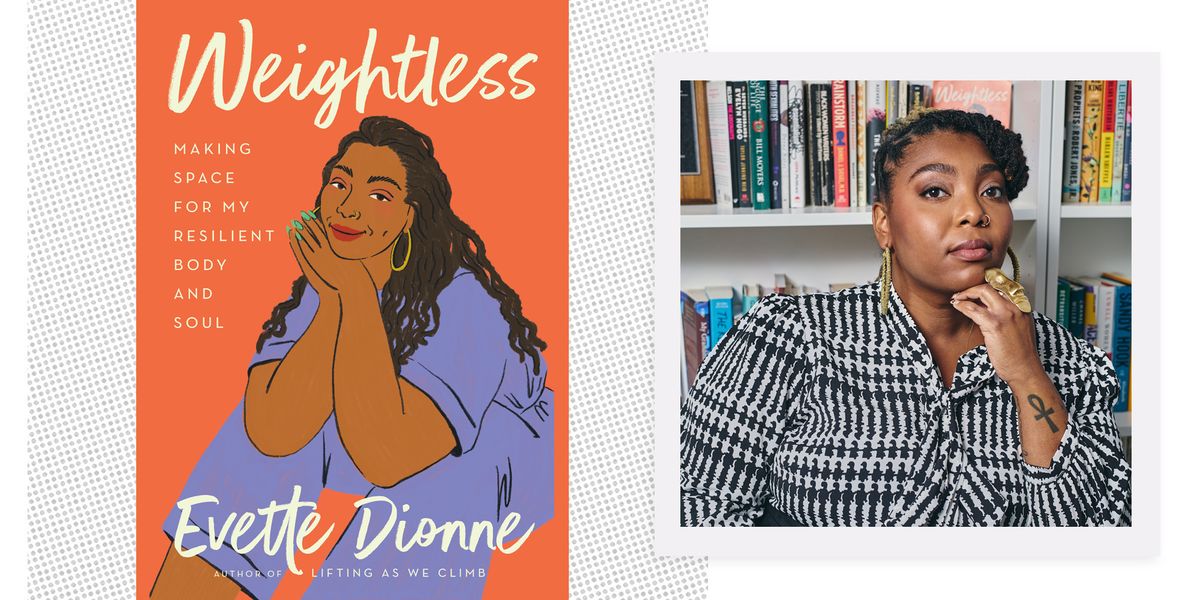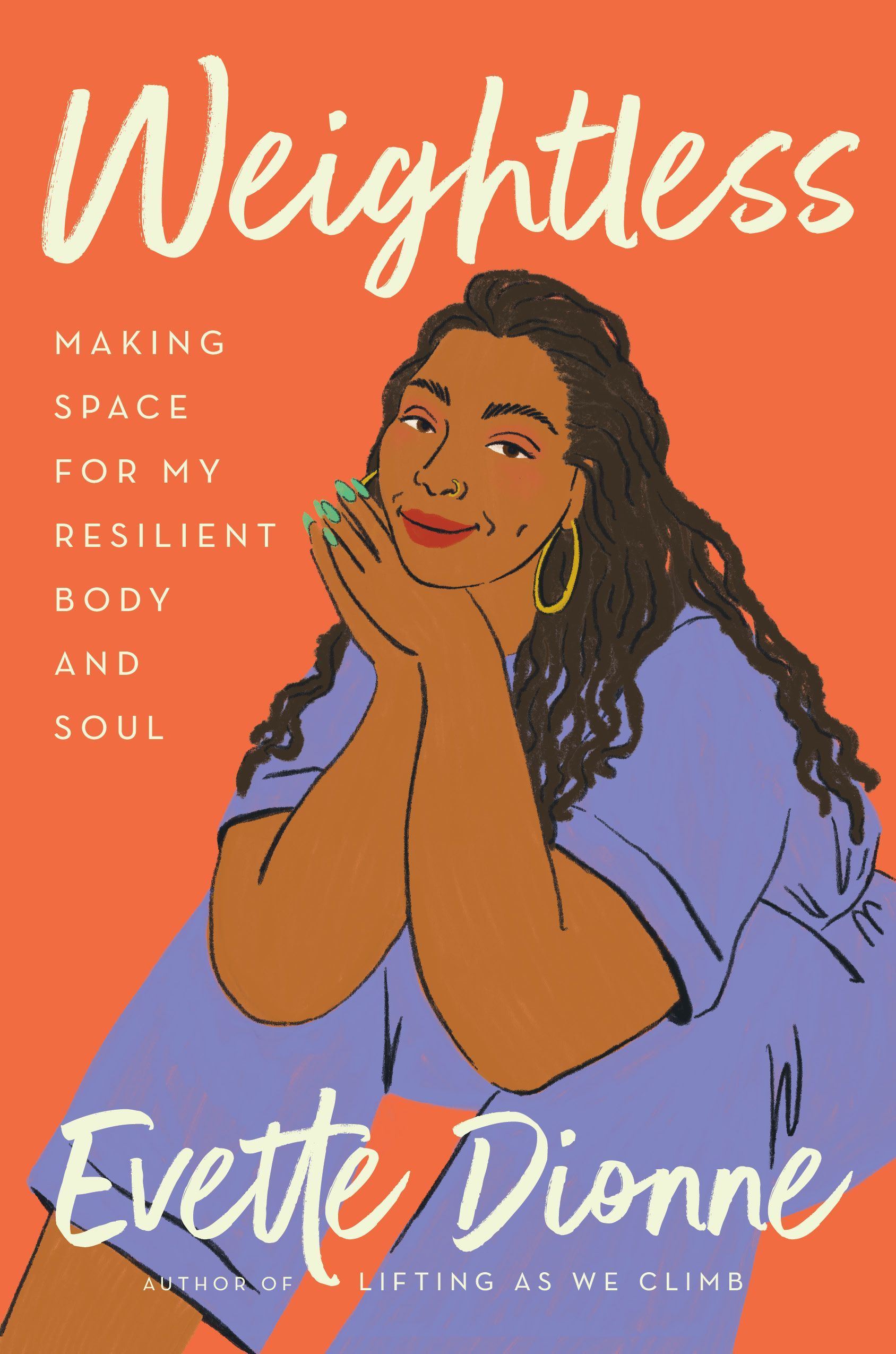
I feel as if my body is withering away. I do not say this as a form of exaggeration or as a quest for sympathy from strangers. It's the rotten bones truth: Since being diagnosed with heart failure in 2019, my body size has shrunk dramatically—so much so that I've had to throw out my entire wardrobe and buy a new one. This is not a compliment. This is not acquired or intentional weight loss. I didn't aim to look in the mirror and see a smaller face or slimmer waist staring back at me, making the fact that it just happened all the more jarring. I often feel as though I'm looking at someone else, someone cringed by illness, but to those who examine my body—strangers and loved ones alike—my newfound body is worthy of praise, no matter how weight loss is achieved.
“You look great” is a common refrain, as is “How much weight do you intend to lose?” You look great!" I've been told I glow so much that it feels like my face has been permanently smeared with bronzer, just enough to keep the compliments flowing. While their intentions aren't malicious—compliments are rarely sparkling—these compliments reinforce order. The same one I've been trying to get a divorce from for nearly a decade now.With a culture that's equal parts obsessed with diet culture and consumed by the sublime ideal, we're all supposed to be on a never-ending journey to conforming to the standard, and when we're able to make it happen - Even if it comes through chronic, progressive diseases, as in my case - it deserves both the reward and the praise. From the perspective of those issuing these compliments, even if the weight loss was the result of debilitating illnesses that could eventually kill me, the disease was worth it.
Nobody cares about losing weight. Whether accidental, deliberate, or a by-product of disease, we were taught that a thin body was to be admired—a sign of newfound discipline and adherence to a skinny ideal after upsetting the social order for so long. Whenever I discuss what heart failure has done and continues to do to my body—exhausting me without warning, stripping me of the Friday night baths I've been looking forward to, and causing excruciatingly painful cramps rolling through my legs and feet—my feelings are pushed aside as people gush about how amazing I look. "You're beautiful now" is a common refrain. "You're too young" is another. What I'm hearing is: Heart failure may have cost you, but the disease has also given you something more important than your aches and pains.
More from ELLE

To be clear, I'm not super skinny. Nobody faults me for being skinny. My body is still fat, but it is much smaller than it was before. My face is smaller. My legs are smaller. My old clothes hang from my frame as if they belong to someone else. While this may seem like a point of pride to those who look at me adoringly through fresh eyes, moved by what I have “achieved,” it is a point of contention for me, a point of sadness and, in some ways, a point of no return. When I look in the mirror, I don't see a body slimmed down by strict dieting and weight loss. I see a tired, battered body, which has passed through sheer hell. I see a floppy body that has run through the juices to keep me alive. None of what I've endured in this scheme is unwinnable: I'm thinner, and so everything I've tried to get here is secondary. It's a common experience for overweight women, especially those who have lost weight in the public eye, and it reflects the ways in which we understand (and don't understand) the relationship of a fat person to thinness.
When Adele debuted a slimmer body on Instagram in 2020, she was bombarded by regular people and celebrities alike. Although the caption on her photo acknowledges the sacrifices of essential workers during the pandemic, her body has become the overriding focus of the comment. YouTuber James Charles commented, "You look amazing," while Chrissy Teigen followed up with, "I mean are you kidding me." Lil Nas X, an Instagram account called Healthy Fitness Meals, Jenni Farley, aka JWOWW, and a mix of regular people and celebrities descended on this photo to compliment Adele. One comment, from Nagore Robles, immediately grabbed my attention because it summed up the problem so much better than I could possibly get: “You worked so hard to look like that and I'm so glad you got your goal, but I want to tell you that you've always been an amazing, beautiful, sexy woman to me.” Mine ".
Few, if any, people mentioned Adele's divorce, which she tried to deal with privately but was still forced to mediate publicly as tabloids speculated about everything from whether she and her ex-husband signed a prenuptial agreement to how much they should pay. you lose it. Alimony for how they navigate custody of their young child. Divorce takes a heavy toll on the majority of people who go through it. For many, it can feel like death—separating forever from two lives that have been mixed together—and it can lead to emotional and mental turmoil for both parties. Given what we know about what divorce does to normal people, why are people praising Adele for being younger in the aftermath of her marriage? “I had the most terrifying anxiety attacks after I left my marriage,” Adele told Oprah Winfrey during an interview in 2021. “They completely paralyzed me and made me so confused that I wouldn't be able to control my body.” Exercise, then, became a way to improve her mental state. Because she trusted her trainer and her workout routine gave her life more organization. As a result of this life transition, I lost 100 lbs. To assume that she is leaner because she intended to be is to assume that all people who lose weight do so on purpose, which only reinforces the very observation that often causes obese people to lose weight in the first place.
When you're fat, every decision you make — or don't make — is under the scrutiny of strangers. If you eat too much or too little, then it becomes worth the hangover. If you lose weight or gain weight, your body will be under a microscope, which is magnified even more if you are a woman or a celebrity. After all, tabloids devoted entire issues to the "best and worst bodies" of celebrities until the practice fell out of favor in recent years. But obese celebrities, in particular, experience an even greater invasion of their privacy. Whether it's Kirstie Alley (politics aside) and Adele or Mo'Nique and Oprah Winfrey, there's a cultural investment in how much their bodies lose and gain and what drives them to do so.
In Adele's case, this is pretty much pure speculation. While her body is never discussed publicly, it's still ground zero for people to put their flags on, bringing out a meaning she's never spoken about about her weight loss. What Adele chooses to do with her body is her business. However, the way we perceive her body reveals all of our cards: Our culture treats weight loss as if it were about beauty or the vain pursuit of assimilation. But we rarely consider that sometimes it is the result of traumatic experiences.
When comedian and actress Mo'Nique first began her career in the late '90s and early aughts, she prided herself on being provocative, daring on and off stage, and being a chubby comedian who wasn't shy about it. her body size. Her catchphrase was often "I'm not afraid of you skinny bitches!" , and she was vocal about skinny women needing to eat more and weigh more in order to compete with her. Mo'Nique's confidence radiates whether she's performing in a fully packed stadium, as she did in The Queens of Comedy, or in prison, as she did in a private show. She has remained unfiltered about everything from her open relationship with her husband to the ways in which the television and film industries pervade and try to disempower black women.
This honesty also translated into her sassy openness about her body size. After winning a Best Supporting Actress Oscar for her role in Precious, Mo'Nique began losing weight and documenting the experience online. She used social media to chronicle her weight loss, which she achieved through a raw food diet plus aerobics focused on dance and cardio, and has been open about her reasons for losing the weight. In an interview with late night host Arsenio Hall, Mo'Nique said, "When my husband asked me my weight, I answered and he said, 'That's overweight.'" I want you around for life and that's not healthy. In that moment I felt guilty, and I felt shame, because of my size. Because I've never felt love like this before. “She developed high blood pressure, and I knew she wanted to be around to raise her two children, who were under 10 at the time.” I want to meet their children. I want to be able to play with their children. I don't want to be a burden to my family due to self neglect. . . . I was lucky to watch my grandmother play with my children. I want to be in the same position."
Mo'Nique chose to lose weight to "save her life" because she believed her body size threatened her health, a situation complicated by the presence of fat phobia in medicine, but nonetheless speaking clearly to the deliberate, personal nature of her decision. She never mentioned that she lost weight to fit in a sample size for a red carpet look or because she felt she would be more beautiful if she were thinner. She lost weight for a reason that felt important to her, but somehow, all we can culturally hold onto is the fact that she lost weight at all. Headlines swirled around Mo'Nique about the exact number she lost, her target weight, and how she achieved the weight loss, but few have figured out why she's so small — because it doesn't matter in a suave fantasy. Her compliance is sufficient, regardless of her reasons.
It is the same experience I had of being reduced to a woman I could no longer recognize. I would be content with my obese body if it meant I did not suffer from heart failure, if pulmonary hypertension did not deprive me of my ability to experience pregnancy and bear my children. I would be content with my obese body because it was mine, not forced to succumb through a strict sodium and liquid regimen that often left me feeling extremely dehydrated. I will be satisfied with my fat body as I have been satisfied with my fat body. It's time to step back from our cultural assumption that losing weight is a victory. When someone's body changes, we still can't help but stare, speculate, and discuss. We rarely stop to think about why other people's bodies are so wonderful to us at all — and what might change if we simply paid attention to the workings of our own bodies and thought less about other people.
Quoted from the bookWeightless: Make Room for My Resilient Body and Soul" by Yvette Dion. Copyright © 2022 by Evette Dionne. Reprinted with permission from Ecco, an imprint of HarperCollins Publishers.
Source link

0 Comments